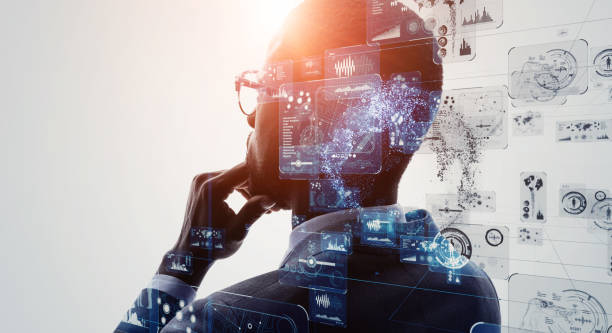The Rise of AI Robotics: Transforming Industries
Artificial Intelligence (AI) and robotics have become game-changers in various industries, revolutionizing the way businesses operate and enhancing efficiency. The rapid advancement of AI-powered robots is reshaping traditional workflows, increasing productivity, and redefining the future of work.
The Evolution of AI Robotics
AI robotics is the fusion of artificial intelligence and robotic automation, enabling machines to perform complex tasks that previously required human intelligence. Over the past few decades, improvements in machine learning, computer vision, and natural language processing have allowed robots to adapt, learn, and execute tasks with unprecedented precision.
What was once limited to science fiction is now a reality—robots are driving cars, assisting in surgeries, and even managing warehouses. As AI algorithms become more sophisticated, robots are developing enhanced problem-solving capabilities, making them valuable assets in multiple industries.
Industries Being Transformed by AI Robotics
1. Manufacturing and Automation
The manufacturing sector has seen one of the most significant transformations with AI robotics. Industrial robots streamline production lines, reduce errors, and boost efficiency. Collaborative robots (cobots) are now working alongside humans, improving safety and precision in assembling products. AI-powered automation also helps predict machine failures, minimizing downtime and maintenance costs.
2. Healthcare and Medicine
AI-driven robots are revolutionizing healthcare, from robotic surgical assistants to automated diagnostic systems. Robotic-assisted surgeries, such as those performed by the da Vinci Surgical System, offer higher precision and minimally invasive procedures. Additionally, AI-powered robots help with drug discovery, medical imaging, and patient care in hospitals.
3. Logistics and Supply Chain
Companies like Amazon and Tesla are leveraging AI robots to streamline logistics and warehouse management. Autonomous robots efficiently sort, package, and transport goods, reducing delivery times. Self-driving vehicles and drones are also being explored for last-mile deliveries, ensuring faster and more efficient supply chain operations.
4. Agriculture and Farming
The agricultural industry is integrating AI robots for smart farming practices. Autonomous tractors, drones for crop monitoring, and AI-powered harvesting robots are optimizing food production. These innovations help detect plant diseases early, reduce resource waste, and improve overall crop yield.
5. Retail and Customer Service
Retail businesses are deploying AI robots for inventory management, checkout automation, and customer service. Chatbots and humanoid robots, like Softbank’s Pepper, interact with customers, answer queries, and provide personalized shopping experiences. AI-powered analytics also help retailers predict consumer behavior and optimize stock levels.
6. Defense and Security
AI robotics play a crucial role in defense, surveillance, and security. Autonomous drones and robotic soldiers assist military operations, reducing human risks in combat zones. AI-powered surveillance robots enhance security in public spaces, identifying threats and improving response times.
The Future of AI Robotics
As AI and robotics continue to evolve, industries will experience even greater transformations. The integration of 5G, the Internet of Things (IoT), and quantum computing will further enhance the capabilities of AI-powered robots. However, ethical concerns regarding job displacement, data privacy, and AI regulations remain key challenges that need to be addressed.
Despite these challenges, AI robotics holds immense potential for driving innovation, improving efficiency, and transforming industries worldwide. Companies that embrace AI-driven automation will gain a competitive edge, paving the way for a smarter and more efficient future.
Would you like me to refine or expand on any part of the article?

